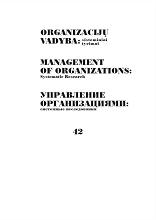protecţia juridico-penală a copiei private a operelor ştiinţifice în raport cu noua legislaţie penală
Author(s): Ciprian Raul Romitan / Language(s): Romanian
/ Issue: 02/2012
Keywords: scientific works; copyright; private copy; reprography
(photocopying); piracy
Over the last years, the technological progress [the appearance of copy
machines and photocopiers (printer, photocopier, scanner, multifunctional
machine etc.)] has allowed a secondary large scale use of scientific works, in
all fields, made by reprography method (photocopying).
Consequently, according to the exposure of Viorel Roş, Professor, „in the
circumstances of the proliferation and improvement of the reproduction
techniques, the control of the use of works is, if not impossible, rather
difficult to be performed”. Keeping the same thinking, one stated that „the
practice of reprography has a negative influence on the dissemination of
books and periodicals, especially of the scientific ones, which cannot be
indifferent to the society, of course”.
The reproduction activities, as well as those related to the sale of
scientific works, without the consent of the author or of the rights owner,
represent illegal actions, known also as piracy and affects, according to the
specifications contained in the documents of the World Organization of
Intellectual Property, all the parties involved in the creation and
improvement of these categories of works, such as: the authors, the rights’
owners, the publishers, the distributors, the consumers and last, but not
least, the state, as the gains obtained by pirates are not subject to taxation.
More...


